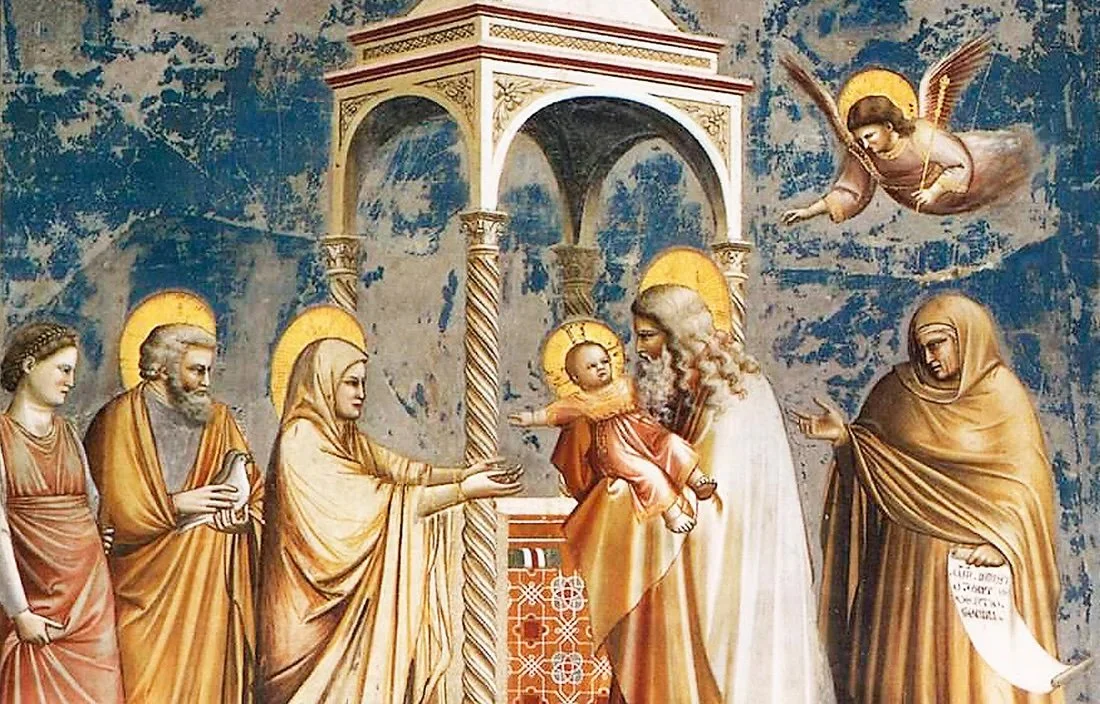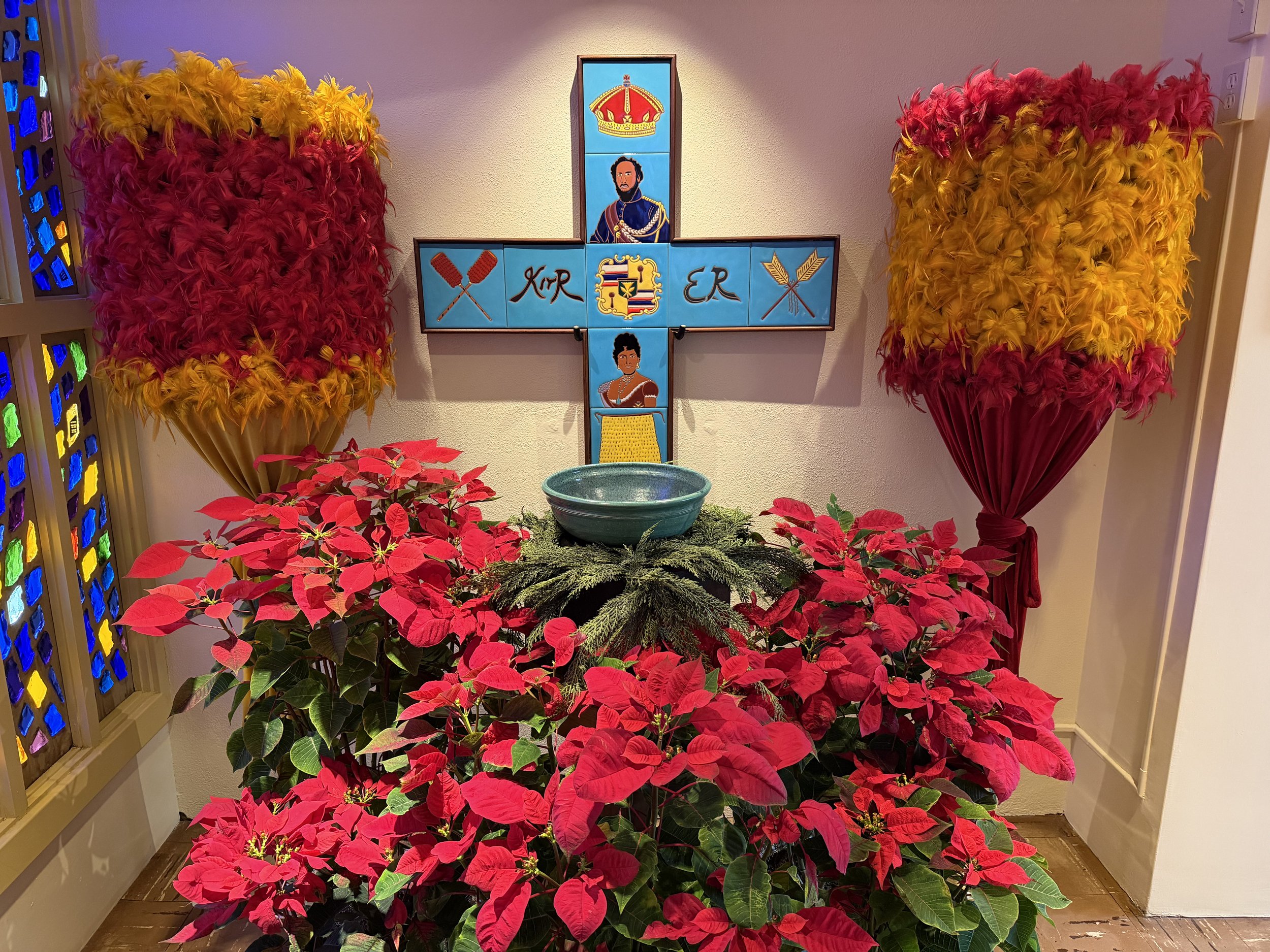From the Rector: Intimacy and Isolation
/Holy Monday 2022
John 12:1-11
In tonight’s Gospel we hear about the most wonderful, intimate dinner party with Jesus, Mary, Martha, and Lazarus. Lazarus has been raised from the dead, and now we witness Mary anoint Jesus’ own body for burial. If Lazarus’ raising was a foreshadowing of Jesus’ rising, soon we shall all witness the real thing.
We had this Gospel just two Sundays ago on the Fifth Sunday in Lent, and at that time I preached about Mary’s extravagant adoration of Jesus, something which Judas criticizes. We know that nard was also used daily in the temple of Jerusalem at the altar of incense. We pondered how Mary is showing us how Jesus is to be the new temple. Whereas there were endless sacrifices at the Jerusalem temple, Jesus shall become the one, true, holy, and spotless lamb, offered up once and for all for the salvation of the world. Jesus shall be the fragrant offering that fills the entire cosmos with the sweet fragrance of new life.
Tonight, however, I want to draw our attention to a different aspect of this Gospel, especially as we move towards the crucifixion in a few short days. I want us to think about intimacy and isolation in regard to the coming days.
We have heard tonight a Gospel story that relays intense intimacy. To begin, it is a dinner party for friends. Jesus has been welcomed into a family gathering, and no doubt, Lazarus’ rising from the tomb would mean that Jesus would be quite a bit closer to Mary, Martha, and Lazarus than most people. They had brought their sorrows and their hopes to him; they had been honest with him about their sincerest desires.
Now Mary anoints Jesus’ feet with fragrant nard. When Jesus washes the feet of his disciples, that would be earth shattering, for the master serves the servants. This act of Mary’s devotion is unconventional in a different way as she is a woman. This is a moment of intimacy that conventionally should never happen, but remember, in another Gospel story, Mary sits at the feet of Jesus as he is teaching: she sits in the space of a student learning from a rabbi. It is as if she is demonstrating the role of an apostle, something the other disciples learn at the Last Supper.
But there is something more happening here, for Jesus is God. This story is from John’s Gospel. This is the Word-made-flesh dwelling among us - among Mary, Martha, and Lazarus. This is the great mystery of the Holy Trinity in the flesh. If there was ever to be an understanding of intimacy in its truest form, this would be it - humanity anointing the very body of God with a holy fragrance, filling the room with the scent of salvation. This is true intimacy.
On this Monday of Holy Week, the Week of Weeks, we witness humanity anointing God’s body before it shall die in complete and utter isolation on the cross. What madness we are witnessing! How is it that we can so quickly move from the most beautiful intimacy to the most horrific isolation as seen on the cross?
Sadly, this happens all the time. No doubt in Ukraine, families were happily playing with their children one night, only to wake up the next day to the horrors and isolation of warfare. People, all the time, enjoy lives of intimacy and joy, only to have a medical diagnosis, environmental catastrophe, or other act of tragedy rip their life apart. Wars happen, cancers are diagnosed, and pandemics erupt. The comforts of intimacy can fall quickly to the realities of isolation - to events such as the cross.
Mystics throughout the ages such as John of the Cross, Teresa of Avila, and our own Anglican Evelyn Underhill, have spoken about the dark night of the soul - times when it seems that the God who allowed the intimacy of today’s Gospel utterly and completely disappears. It is representative of the complete dereliction that Jesus felt on the cross - complete abandonment from God, and we might add also, complete abandonment from family and friends. It is total isolation. There are times that are so dark that it seems as if God does not even exist, or even worse, that God does not care. One moment humanity anoints the feet of Jesus, and a few days later God in Jesus dies, and people like Mary will feel total loss, rejection, fear, and isolation.
Thankfully this is not the end of the story. We know how Holy Week ends. We will all be rejoicing at the Easter Vigil and on Easter Day. The harder part of this week, however, is rejoicing at the foot of the cross. The hardest part of Holy Week is practicing intimacy when isolation seems to have conquered all things. It is one thing to praise God on Easter Day. It is another thing to stay present when Jesus is betrayed, and it is even harder to keep hope alive when keeping vigil at the foot of the cross.
On Good Friday we will witness the faith of another remarkable woman - Mary will keep vigil at the foot of the cross. “At the cross her station keeping, stood the mournful mother weeping.” We sing those words from the Stabat Mater every Friday in Lent, and we shall sing them a lot this Good Friday. In regard to intimacy, Mary had extreme intimacy with Jesus. She carried him in her womb, and she held him in her arms. She would also experience isolation in a way that none of us shall when her own son was crucified on the cross. Like both of these Mary’s, we are called to maintain intimacy with God when extreme isolation comes. We are called to rejoice in the wondrous acts of God’s love, even when it seems love has been killed on the cross. +
Father Paul Lillie +







